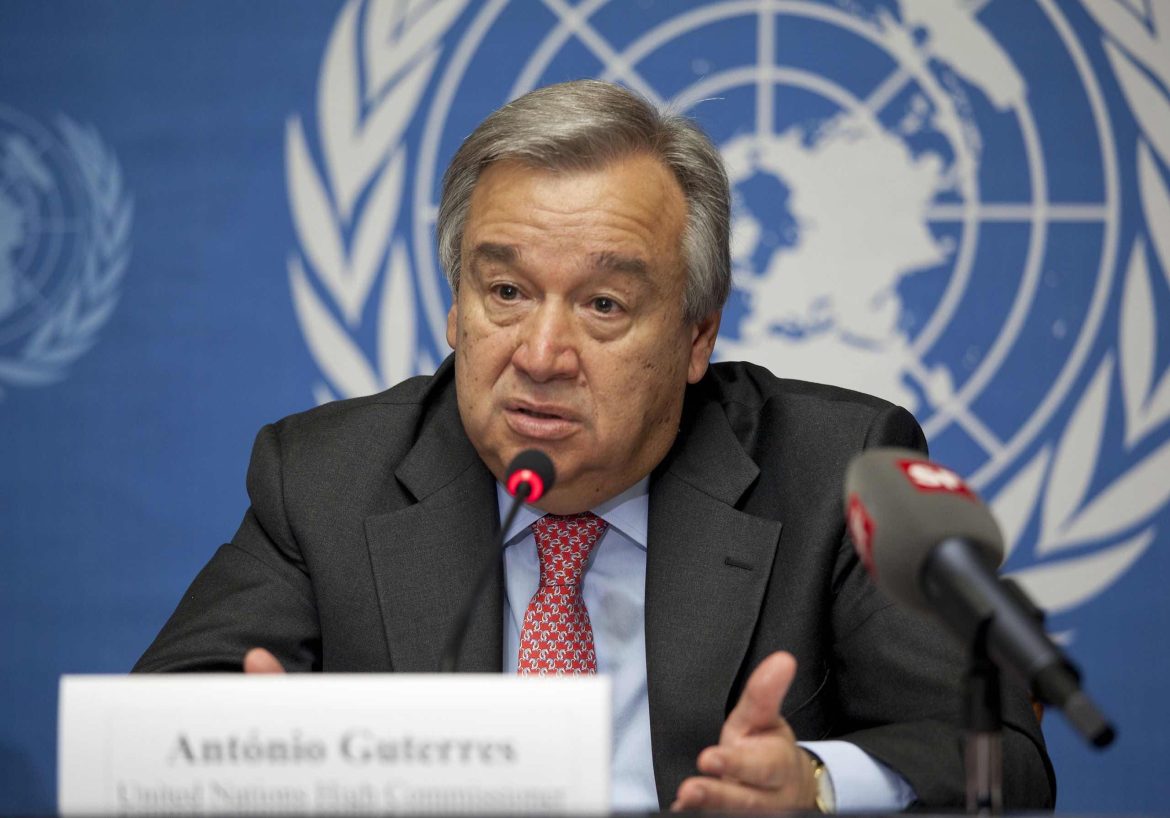United Nations Secretary-General António Guterres has warned Russia and Israel that their armed and security forces could be named next year among parties “credibly suspected” of patterns of rape or other forms of sexual violence in armed conflict.
The warning appears in his annual report to the Security Council and, in Israel’s case, a letter to Ambassador Danny Danon dated 12 August. Israel rejected the allegations; Russia has not commented publicly on the latest findings.
Guterres told Israel he was “gravely concerned” by credible information indicating violations by military and security personnel against Palestinian detainees in several prisons, a detention centre and a military base. He said Israel was being placed “on notice” for possible inclusion in next year’s conflict-related sexual violence annex and urged measures including credible investigations, clear prohibitions in orders and codes of conduct, and unimpeded access for UN monitors. Danon dismissed the claims as “baseless accusations” and said UN attention should focus on Hamas’s 7 October 2023 attack and the release of hostages.
The report also lists Hamas as a group “credibly suspected” of patterns of rape or other forms of sexual violence in armed conflict, an assessment Hamas denies. The Secretary-General’s report is not a judicial finding but feeds into Council deliberations and sanctions design, and may lead to inclusion or removal from the annex depending on remedial steps taken.
On Russia, Guterres cited “credible information” implicating Russian armed and security forces and affiliated groups in sexual violence, much of it in detention settings. Recent UN reporting identifies civilian victims as well as prisoners of war. In a May 2025 report to the Human Rights Council, the UN Human Rights Office (OHCHR) recorded accounts from both civilians and POWs of rape, electrocution and beatings to the genitals, forced nudity and other abuses, finding that sexual violence was a prevalent method of torture used to intimidate, extract information and humiliate. Thirteen civilian interviewees (10 women and three men) described sexual violence; OHCHR emphasised that limited access to detainees in occupied areas means cases are under-documented.
The UN’s Independent International Commission of Inquiry (COI) on Ukraine has separately documented additional cases of rape and sexual violence in areas under Russian control and described sexual violence—often against male detainees—as a form of torture. In March 2025, the Commission reported that Russia’s enforced disappearances and torture in occupied regions are “widespread and systematic,” amounting to crimes against humanity; its findings include sexual violence in a network of detention facilities.
OHCHR has also detailed sexual violence against children in civilian settings during the first months of the invasion. A March 2025 report documented 12 cases against children aged three to 17, largely in residential areas, including the rape of a pregnant 16-year-old in Kherson region in March 2022 and an attempted rape in Chernihiv region witnessed by a three-year-old child. The report outlines broader patterns of repression in occupied territory and reiterates the need for accountability and access.
A subsequent OHCHR periodic report covering July–December 2024 again recorded sexual violence against civilians and POWs, described lack of access to occupied territory and Russia, and urged compliance with the absolute prohibition of torture and ill-treatment. It identified multiple state entities involved in detainee abuse and noted that abuse often paused during official inspections, indicating control by facility supervisors.
Russia has previously rejected UN allegations relating to detention conditions and treatment of Ukrainians and has not engaged with the Secretary-General’s special envoy on sexual violence in conflict, according to the UN. Independent access to occupied territory remains restricted, complicating verification and scale assessments.
The annex to the Secretary-General’s conflict-related sexual violence report lists state and non-state parties assessed as credibly suspected of patterns of rape or other forms of sexual violence in situations of armed conflict. Inclusion is not automatic and depends on assessed conduct and remedial actions. Parties may avoid or be removed from the annex by demonstrating credible, timely and impartial accountability measures, survivor-centred support, and cooperation with UN mechanisms.
The latest findings place Israel and Russia under closer UN scrutiny ahead of next year’s listing decisions. For Israel, the UN has requested access for monitors and detailed information on investigations. For Russia, UN bodies have recorded civilian cases—including against women, men and children—in occupied areas and detention facilities, with sexual violence characterised as a method of torture and, in the wider pattern of abuses, part of crimes against humanity.


